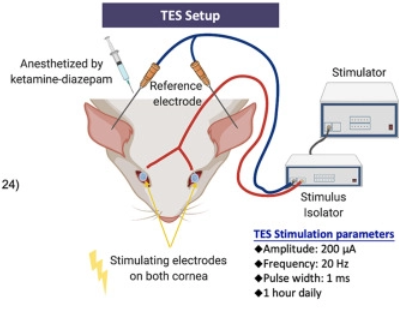Changing an organ’s blood type, calcium stops stones, treating depression through the eye, and more
16 Aug 2022
Posted by Andrew Kantor
Court nixes copay assistance
A US Court of Appeals has ruled that Pfizer’s co-pay assistance program for its Vyndaqel and Vyndamax meds (tafamidis, if you’re being formal) violates the Federal Anti-Kickback Statute.
The logic is that Pfizer is essentially saying to patients, “If you get this med (and we get $212,000 from the government), we’ll give you $13,000.” (Officially, Pfizer is offering to cover Medicare patients’ $13,000 co-pay.)
Pfizer argued that, because tafamidis is the only med for a rare heart condition, co-pay assistance didn’t “improperly induce the underlying prescribing decisions.” In other words, it’s not as if patients were able to choose tafamidis over something else.
The Office of the Inspector General disagreed, saying it didn’t matter whether Pfizer’s intent was good or evil — the goal of the co-pay program was to pay people to get the government to buy Pfizer’s meds. The court agreed with the OIG, and here we are. How will this affect other co-pay programs? Stay tuned.
Immunization training: less than a week to go
This is what you need to know:
- GPhA is offering APhA’s popular immunization certificate course.
- It gives pharmacists 20 hours of CE credit.
- The live portion — including seminar and hands-on training — is next Sunday, August 21.
- It’s a license-renewal year.
- The certificate is pretty, and it will impress people.
The French-Canadian connection
Americans, please form an orderly queue when going to Montreal to get a monkeypox vaccine.
People with good calcium shouldn’t get stones
Know someone with kidney stones? You might recognize them by the pale complexion or the screaming in agony. You can taunt them by saying, “You know, having enough “calcium, potassium, caffeine, phytate, and fluid[s]” could have prevented that, according to researchers at the Mayo Clinic.”
But if you feel like being nice, you can let them know that those same researchers narrowed down the details. It seems that you can prevent recurrence of kidney stones by making sure you have enough calcium and potassium in your diet. (Or as they put it, “Lower dietary calcium and lower potassium intake were predictive of symptomatic kidney stone recurrence.”)
Shaaaaaaaaaaane
Shout-out to Shane Pruitt, GPhA member and director of recruiting and undergraduate advising at UGA’s College of Pharmacy, who was just featured in UGA Today.

Kidneys get their ‘O’ face
I didn’t think this could be done, but I’m not a Cambridge University researcher. They were able to change the blood types of three donor kidneys from type B to type O, the universal donor.
How? They added an enzyme to blood that they pumped through the organs; it “removed the blood type markers that line the blood vessels of the kidney, which led to the organ being converted to type O.”
As you might imagine, this is big news — especially for people with type B blood, because it’s uncommon enough to make finding donors much harder.
A bit about Moderna’s booster
It’ll be ready this month. The bivalent booster, called mRNA-1273.214, is designed to protect against the OG Covid virus as well as Omicron — including the BA.4 and BA.5 subvariants that are the current 800-lb. (57 stone) gorillas.
And that’s why…
The UK has approved it. The Medicines and Healthcare products Regulatory Agency (FDA with a British accent) is the first of the big approvals Moderna expects; it’s also submitted it to Australia, Canada, the EU, and the US.
Here’s electrodes in your eye
There’s a proven way to treat depression: deep brain stimulation of the prefrontal cortex. Problem: You need to drill holes into the patient’s skull to implant electrodes.
Various ways to avoid the whole putting-holes-into-someone’s-head thing have been tried, with varying degrees of success.
The latest comes from Hong Kong, where biomedical and electrical engineers have come up with a way to stimulate the prefrontal cortex without drilling holes, but maintaining almost the same level of disturbance. They go in via the eye.
The call it “non-invasive stimulation of the corneal surface” or transcorneal electrical stimulation (TES). They tested it on animals and it…
… resulted in remarkable antidepressant-like effects and reduced stress hormones in an animal model for depression. Furthermore, this technique induced the expression of genes involved in the development and growth of brain cells in the hippocampus.

That does not look comfortable.
Business 101
Pro tip: If you find that someone in your pharmacy was in contact with a Covid-19 patient, don’t lock down your building and try to quarantine everyone.
News of the flash shutdown sent shoppers fleeing and screaming in an effort to get out of the building before the doors were locked, videos on social media showed.
The Long Read: Same Old Song edition
According to pharma companies, capitalism is a one-way street, and it leads to their CEOs’ paychecks. Read how “Big Pharma Went All In to Kill Drug Pricing Negotiations” — and how it’s used the same (wrong) argument for a long long time.
The drug industry warns that any price negotiation will kill innovation. Such warnings “constitute the pharma response in literally every instance since 1906,” the year the first drug regulation agency was created.
Fun fact: The Affordable Care Act was also supposed to “kill innovation,” and yet pharma companies are reaping record profits. Go figure.


